FROM ECO-ANXIETY TO ECO-OPTIMISM LISTENING TO A GENERATION OF RESILIENT YOUTH



To understand how young people are dealing with eco-anxiety and what they want to see from leaders, UNICEF USA created and fielded a survey of 3,000+ 16-24 year olds across 15 countries. The survey explores how youth view climate change today, their emotional and practical approaches to dealing with it, and what they demand more of to drive meaningful and attainable change.
Youth around the world are acutely aware that action is needed to mitigate climate change, and they are looking to experts to help them navigate this new world. It would be hard for them not to: the vast majority of those surveyed are seeing the impacts of climate change on their own communities, from extreme temperatures to droughts and floods to air pollution.
Our survey found that more than half of these youth across the globe (57%) experience eco-anxiety. However, they aren’t letting their anxiety spiral into despair, or worse, apathy. Instead, threats of climate change drive their resilience, optimism and activism.
Though this resilient mindset is positive, a gap remains between young people in this survey who identify as eco-optimists and eco-realists (a combined 66%) and those taking direct action in their own communities (just 16%). For those working to counter and mitigate the effects of climate change, it is clear we need to do more to foster agency among young people and create direct opportunities for young people to participate in and drive climate solutions.
The respondents to our survey shared frustration with mainstream media’s doom-and-gloom framing of climate change and with the lack of local, realistic solutions shared by decision makers. Instead, they are turning to social media and “people like me” as information sources on climate. Green jobs rank first among the climate solutions that young people want to see. These findings provide valuable insight to advocates, educators, governments and media interested in engaging the next generation to confront the global climate crisis.
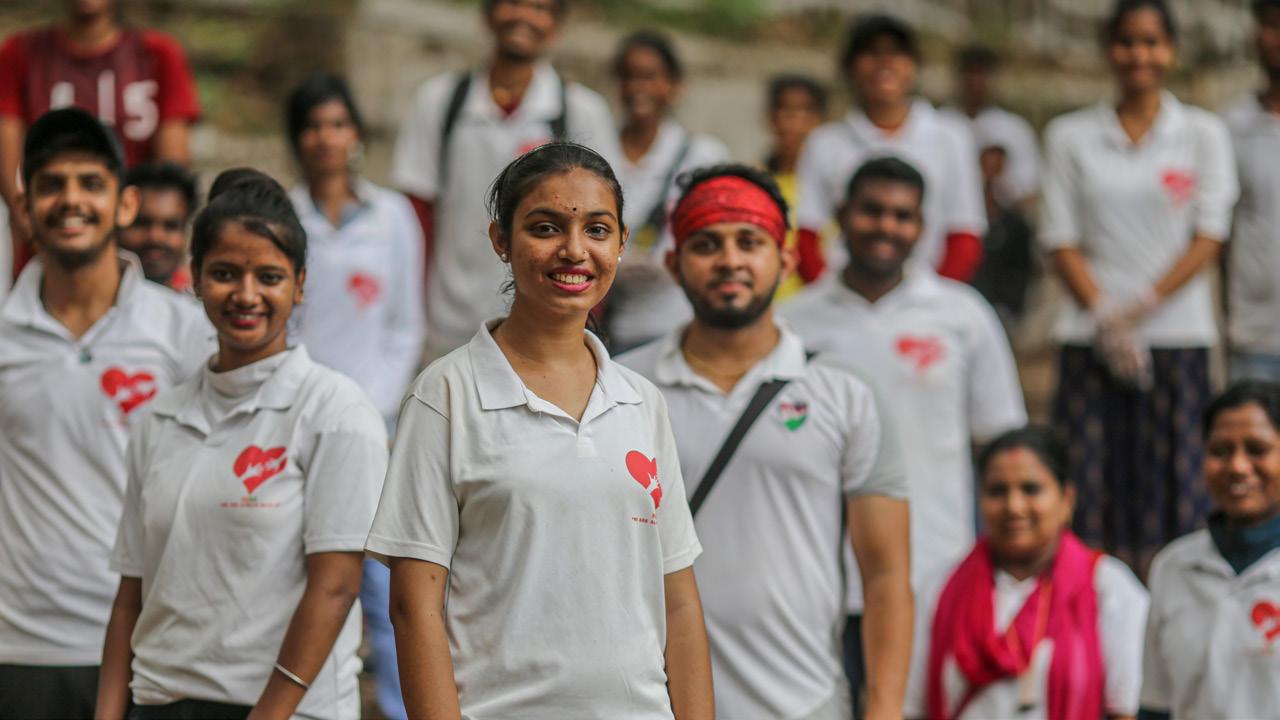
Today’s young people experience the impact of climate change on their communities every day, both at their doorsteps and in the media they consume. Global headlines have increasingly used the term “eco-anxiety” to describe a generalized fear of environmental doom. Yet few are telling the story of the optimism and action that define how young people want to deal with it.
We surveyed 3,359 young people in 15 countries across Africa, Asia, and North and South America and found that more than half (57%) experience eco-anxiety. What’s more, half of youth surveyed say they see the impact of climate change on their local community every single day. Youth in low- and middle-income countries feel the impact of eco-anxiety most dramatically.
Percentage of youth who report eco-anxiety
Percentage of youth who report eco-anxiety
57% of global youth surveyed are eco-anxious
More than 1 in 3 youth surveyed experience extremely high levels of anxiety about climate change.
And for good reason: The vast majority of youth are already being impacted by multiple forms of climate change in their local communities.
*Percentage
CLIMATE ISSUES YOUTH ARE EXPERIENCING
Excessive heat and/or cold: 83%
Changed rainy and dry seasons: 81%
Air pollution: 77%
Prolonged dry seasons/drought: 59%
When asked about the preferred type of action or approach they take towards managing feelings of eco-anxiety, 81% of global youth surveyed identify as either eco-optimist, eco-realist or eco-activist. Conversely, only 6% identify as eco-apathetic and only 13% as eco-pessimistic. We need to further empower and provide agency for young people to close the optimism to activism gap.
The appetite is there, and it’s up to experts, governments, corporations and other decision makers to bridge that gap. Our survey found that these young people often don’t feel that they have the appropriate knowledge or resources to actively make a difference in climate change. Youth WANT to take action, they just need more levers to do so in their communities. That includes levers beyond protest, which while critically important was only cited by 15% of young people as an outlet for their eco-frustrations.
WHICH OF THE FOLLOWING BEST DESCRIBES YOUR APPROACH TO MANAGING YOUR FEELINGS ABOUT CLIMATE CHANGE?
Youth surveyed in the Philippines had the highest rates of eco-anxiety, but they are also the most resilient and engaged.
MOST EXPOSED, MOST ECO-ANXIOUS…
96% have experienced excessive heat/ cold, 80% have experienced flooding, 76% have experienced severe storms - more than any other nation surveyed. The Philippines ranks #31 on the UNICEF Children’s Climate Risk Index.
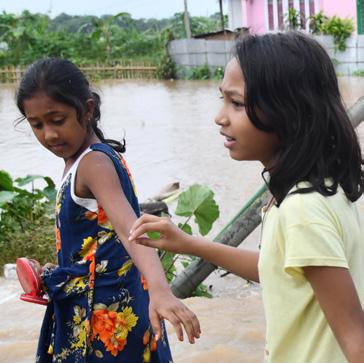
MORE ACTION-ORIENTED:
…BUT MORE ENGAGED: The majority (56%) of Filipino youth surveyed are actively discussing climate change on social media at least a few times a week.
MORE RESILIENT:
61% of Filipino youth surveyed say managing the impact of climate change on their mental health is part of their daily routine (compared to 43% of global youth surveyed).
74% of Filipino youth surveyed say the negativity they see and hear around climate change motivates them to want to come up with solutions and 81% are likely to take an eco-optimist, eco-realist or eco-activist approach to managing how they feel about climate change.
Ultimately, the youth we surveyed across 15 countries are resilient—while they are anxious, they aren’t letting the negative headlines define them. Gen Z has accepted that climate change is here to stay and acknowledge that worrying about its impact is a part of daily life.
52% OF YOUTH RESPONDENTS said “people of my generation have accepted that climate change is here to stay”
43% OF YOUTH RESPONDENTS said “managing the impact climate change on my mental health is part of their daily routine”
am optimistic that we can significantly reduce climate change and am open to solutions
am realistic that climate change is here to stay and am open to solutions
WENEED TO FURTHER EMPOWER AND
PROVIDEAGENCY FOR YOUNG PEOPLE TO CLOSE THE OPTIMISM ACTIVISM GAP
Global youth surveyed want to see more local, realistic and accessible solutions to tackle climate change.
Surveyed youth are looking to local and regional governments, the UN, scientists and climate experts to share tangible solutions to the climate crisis. In particular, they want to know how they can build their careers in green jobs and support in their local communities.
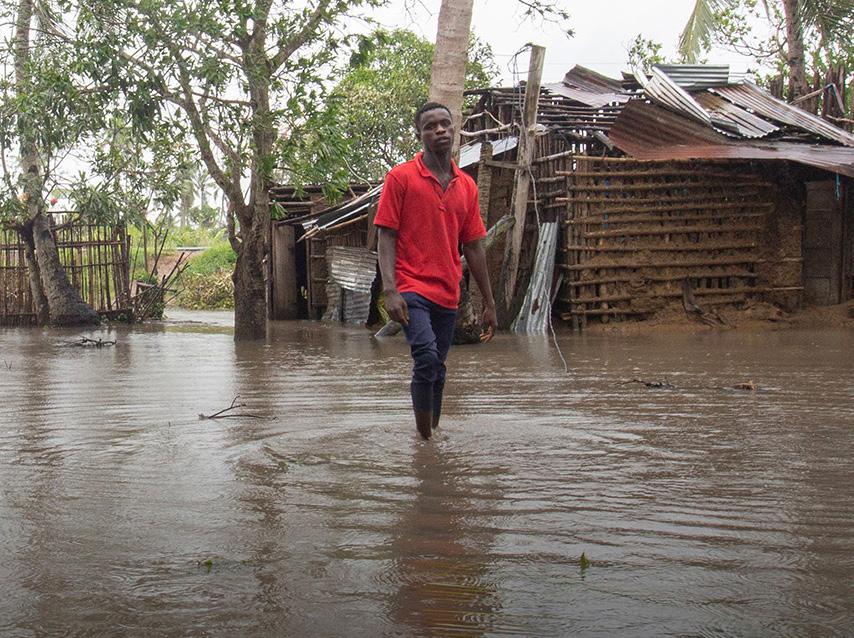
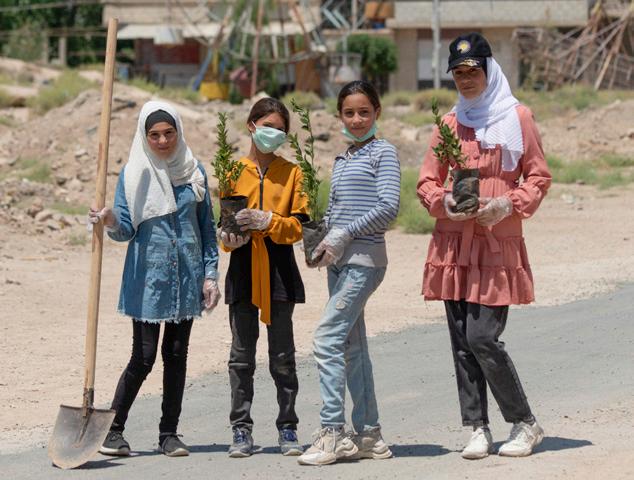
Acknowledging the realities of climate change: 33%
Teaching myself and others how we can positively impact climate change: 30%
Actively participating in initiatives to combat climate change: 27%
Sharing my frustrations with others, like attending protests: 15%
Allowing myself to feel upset and despair: 13%
TOP YOUTH FRUSTRATIONS WITH CURRENT CLIMATE CHANGE SOLUTIONS
Not enough solutions for my local community
34%
Unrealistic and out of reach
23%
Too difficult for me to get access to 21%
Notably, surveyed youth do not feel their views and the realities of the communities in which they live are accurately reflected in the media. Over half of youth surveyed agree they would rather listen or talk to people of their generation about climate change than the media.
Nearly half (47%) say discussion on social media better reflects how they feel about climate change than traditional news media.
44% say media doesn’t accurately reflect what is really happening in my local community.
Surveyed youth in the U.S. and Asia are most likely to say news coverage is scary and anxiety inducing.
At the same time, national and local governments are well positioned in the minds of young people. Youth still see these organizations as trusted sources of hope and action.
WHERE YOUTH WANT TO GET CLIMATE CHANGE SOLUTIONS
THE GOVERNMENT OF MY COUNTRY THE UN/INTERNATIONAL GOVERNING ORGANIZATIONS
LOCAL GOVERNMENT
77% of youth surveyed say they participate in social media conversations around climate change and more than 1 in 3 (37%) are doing this multiple times a week.
Frustrated with mainstream media’s doom-and-gloom lens on climate, young people are turning to social media and peers to discuss solutions.
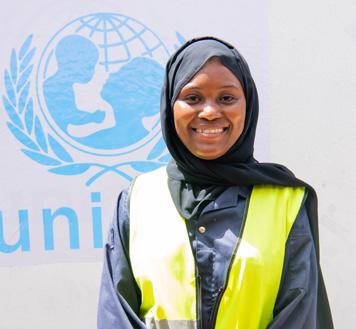
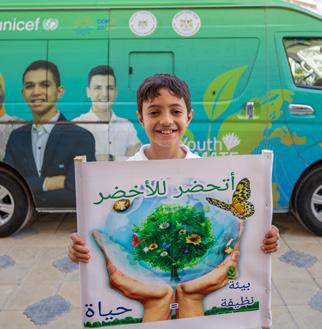

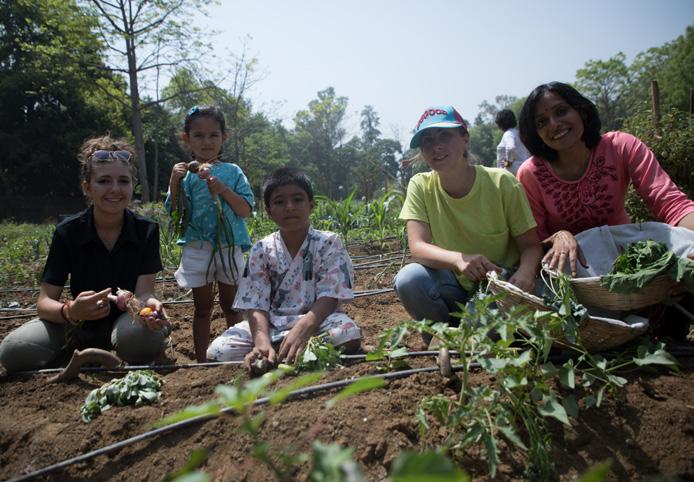
IN MONGOLIA, young people are using citizenscience research to investigate how air pollution affects them. In partnership with the Scout Association of Mongolia, UNICEF launched the Youth for Climate and Clean Air Network (YOUCCAN) to limit exposure to pollutants and improve air quality and health through programming and advocacy. YOUCCAN has engaged more than 60,000 young people to disseminate information on climate change and air pollution, reaching 1,015,250 people through social messages and campaigns.
IN BURUNDI, a program called Green Girls 2.0 helps girls learn to source and manufacture sustainable charcoal to reduce forest destruction and smoke from cooking fires. They cook with the eco-charcoal they make and sell the rest.
IN KENYA, NIGERIA, THE PHILIPPINES AND SOUTH AFRICA, youth are using a digital platform called Yoma to develop their digital skills, find opportunities in the green economy, earn money and achieve impact—while connecting to peers in a supportive community. The concept was developed by young Africans to address skills development and employment challenges. Yoma aims to reach more than 500,000 young people by the end of its first year with opportunities in the digital and green sectors.
IN TANZANIA, UNICEF and partners are engaging youth through WasteX Labs to develop solutions for improved waste management on the island of Zanzibar. Young people, especially girls, are coming up with digital innovations to improve quality of life and public health in their communities through better waste management. Creative solutions designed by youth include: an app that allows users to identify trash—which can be a breeding ground for vermin and disease—and send images to waste management authorities, and an alert system to address power outages more quickly for a greener approach to energy management.
One young female farmer, Arafa Hamad Bakari (bottom left photo), has found an innovative and environmentally friendly way to make organic fertilizer with solid waste that she collects from hotels. She sells her product to her fellow farmers, and demand is far outpacing supply.
Join our climate advocacy efforts to demand that the U.S. Government steps up efforts to protect children from the impacts of climate change, particularly through U.S. foreign assistance programs and policies: www.unicefusa.org/takeclimateactionnow.

The survey findings reveal an opportunity: a full two-thirds of young people surveyed identify as eco-optimists or eco-realists. We need to harness this engagement to increase the number taking direct action.

Software company SAP partners with UNICEF in support of Generation Unlimited, an initiative that helps young people gain skills relevant for employment, entrepreneurship and social impact. The partnership supports learning to earning pathways in the digital and green economy for underserved youth in Nigeria, the Philippines, South Africa and Kenya. Equipping young people with digital and green skills enables them to not only partake in climate action, but to become tomorrow’s leaders developing innovative climate solutions. To learn more about the exciting partnership, visit: https://www.unicef.org/partnerships/sap.
Young people clearly voiced through our survey that, to get young people to the table, they want to see hyper-local, realistic and short-term solutions to the climate crisis that are accessible for all.
Several private sector partners support UNICEF’s locally targeted efforts around climate action across continents. In Brazil, programs have engaged and trained thousands of young people to take action on issues affecting their communities through Climate Action Clubs. These clubs have already reached a combined 570,000+ people in person and online. In India, youth volunteers receive training to become “water champions” in their communities, equipped to train others on addressing water scarcity by fixing leaks and flows of taps, encouraging people to use less water and advocating for community soak pits. The program aims to activate more than one million volunteers and conserve about one billion liters of water. To learn more, visit: https://www.generationunlimited.org/global-volunteer-initiative.
unicefusa.org
UNICEF USA partnered with its strategic communications agency of record, M Booth Health, to commission Savanta, a data, market research and advisory firm, to design and field the Eco-Optimism Survey.
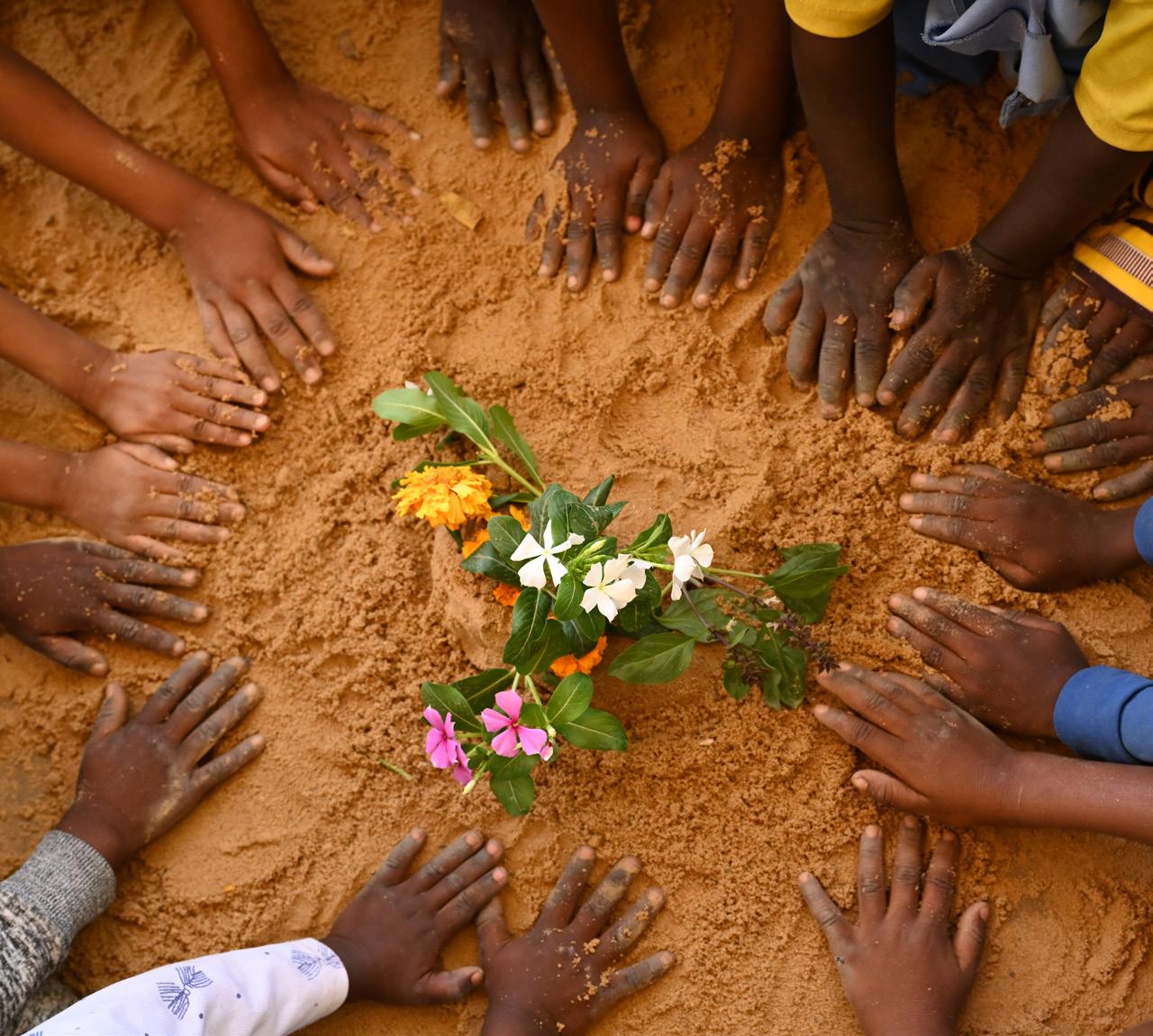
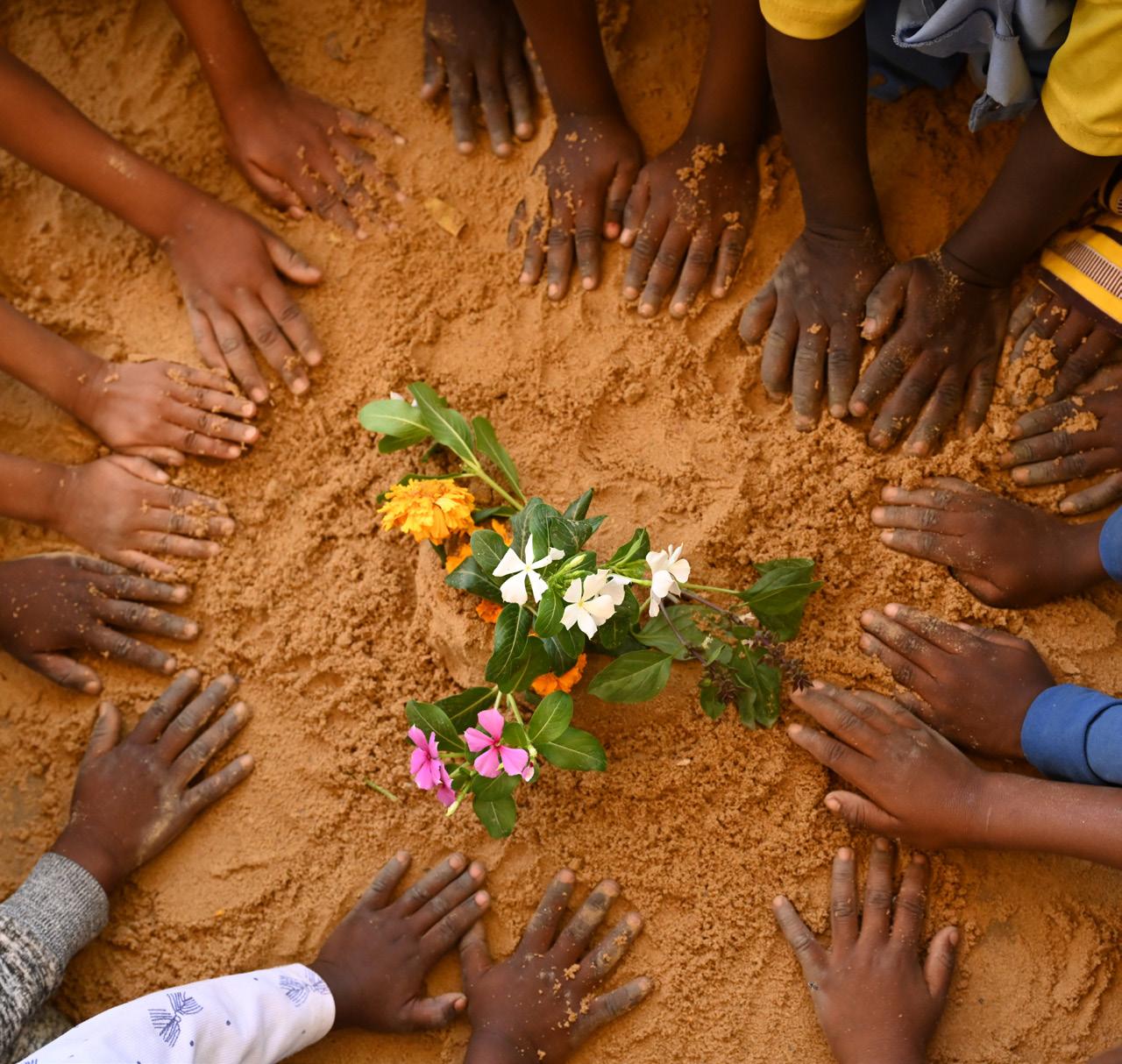 CREDITS: Photographs — Front cover: © UNICEF/UN0585482/WILLOCQ; page 2: © UNICEF/UN0684179/SINGH; page 4: © UNICEF/UN0624556/BORO; page 5: © UNICEF/ UN0679052/BELAL, © UNICEF/UN0801979/ZUNIGA; page 6: © UNICEF/UN0726804/MOSTAFA, © UNICEF/UN0625710/MODI, STUDIO 19 (2023), © UNICEF/UN0730697/ MOSTAFA; page 7: © UNICEF/UN0547112/ELWYN-JONES, © UNICEF/UN0730699/MOSTAFA; back cover: © UNICEF/UN0794851/DEJONGH
CREDITS: Photographs — Front cover: © UNICEF/UN0585482/WILLOCQ; page 2: © UNICEF/UN0684179/SINGH; page 4: © UNICEF/UN0624556/BORO; page 5: © UNICEF/ UN0679052/BELAL, © UNICEF/UN0801979/ZUNIGA; page 6: © UNICEF/UN0726804/MOSTAFA, © UNICEF/UN0625710/MODI, STUDIO 19 (2023), © UNICEF/UN0730697/ MOSTAFA; page 7: © UNICEF/UN0547112/ELWYN-JONES, © UNICEF/UN0730699/MOSTAFA; back cover: © UNICEF/UN0794851/DEJONGH